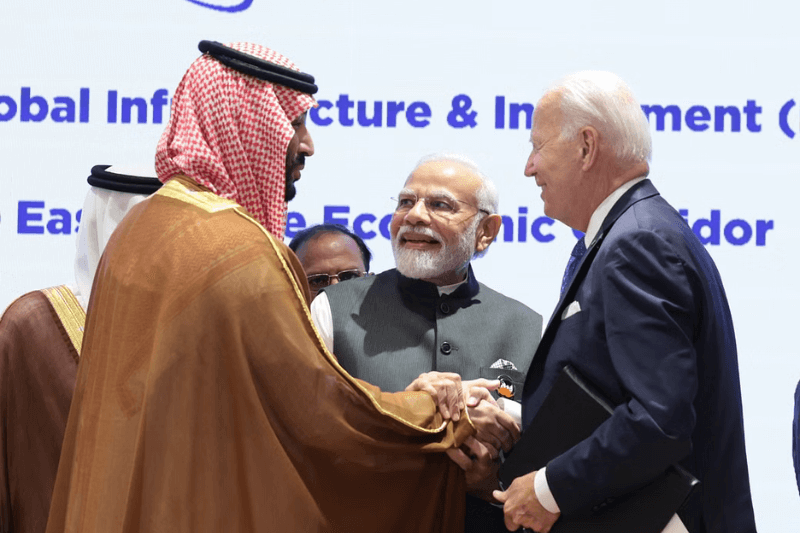
India-Middle East-Europe Economic Corridor: Critical Challenges And Obstacles Ahead
Putting an end to speculations, a historic Memorandum of Understanding was inked during the 2023 G20 Summit between India, the UAE, Saudi Arabia, Italy, France, Germany, US and the EU to establish a mega India-Middle East-Europe Corridor (IMEC).
The ambitious project would connect India, the UAE, Saudi Arabia, Israel, Jordan and the EU, establishing a milestone rail and shipping corridor aimed at facilitating seamless trade, transportation of energy resources and improvements in digital connectivity.
The IMEC is expected to create a consolidated trade route that will reduce trade costs, promote market access and encourage investment opportunities between the participating countries. The project could also enhance regional connectivity by improving cross border co-operation.
Notable Challenges And Obstacles Ahead
Closer economic relations resulting from the corridor will incentivise collaboration on various fronts. Additionally, a shared economic interest will create avenues for stronger diplomatic relations, security co-operation, facilitating dialogue and fostering geopolitical equilibrium.
Nonetheless, even though the economic corridor holds significant potential for the participating countries, a string of possible challenges and obstacles must be addressed to ensure the mega project’s successful implementation and to maximise its benefits.
One of the most critical challenges is navigating the complex geopolitics of the region. These complexities may hinder the development of seamless connectivity. Diplomatic dialogue is, therefore, imperative to create an environment conducive to collaboration.
Keep Reading
Potential Economic Competition From China
As far as maximising the IMEC’s economic benefits, it is also important to consider the competition expected from China. Beijing’s Belt and Road Initiative (BRI) and other global economic influence and connectivity projects can create economic competition for the corridor.
China will seek to divert trade and investments towards its own corridors. It is crucial for India, Middle East and Europe to strategically navigate the potential competition, although it may prove challenging for Europe as China remains its second main trade partner.
Additionally, on the investment aspect, one of the critical challenges to implementing the economic corridor is securing adequate funding. After all, delays in funding in any of the infrastructure projects in any of the participating countries will affect the overall progress.




